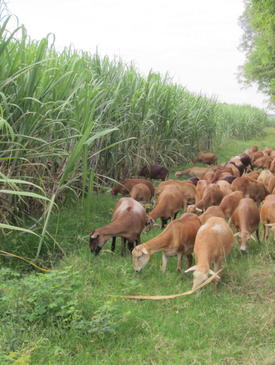International Course in Agro-ecology and Restoration Ecology: Sustainable Agricultural Landscapes with Resilience
Summary
Agro-ecological systems, characterized by plant and animal diversity and the various interrelations between these entities, have demonstrated an extraordinary capacity to adapt to climate change. In the tropics of Latin America, agro-ecological production is vigorous and profitable and has great social and environmental benefits. These benefits can have measurable effects at the landscape level if the adoption of agro-ecological practices is carried out simultaneously with the ecological restoration of degraded lands.
This five-day course aims to teach participants about the principles of agro-ecology and ecological restoration and the application of both disciplines in order to strengthen the resilience of tropical agricultural landscapes in terms of productivity, economics and social and environmental aspects within a changing climate.
Content
Module 1. Agro-ecology
- The scientific basis for agro-ecology
- Matter and energy flows in agro-ecosystems
- Principles and values of agro-ecology
- Agricultural systems vs. natural ecosystems
- Agro-ecology and soil management
- Ecological management of plagues and diseases
- Resilience in production systems
- Conversion of conventional systems to an agro-ecological management
Module 2. Ecological restoration
- Foundations of ecological restoration: ecological succession, natural and anthropogenic disturbances and reference ecosystems
- Ecological restoration in agricultural landscapes
- The effects of restoration and agro-ecological production on water quality
Module 3. Agroforestry
- Agro-ecology and ecological restoration principles that apply to agroforestry
- Biodiversity in agroforestry systems
- The functions of agroforestry systems within landscape-level restoration
Module 4. Sustainable cattle ranching with silvopastoral systems
- Sustainable cattle ranching in Latin America and the Caribbean
- Livestock agroforestry systems
- Intensive silvopastoral systems (iSPS).
- Evaluating technical, economic and animal welfare aspects within iSPS
- Functional biodiversity in silvopastoral systems
- Ecological restoration in a cattle ranching context


